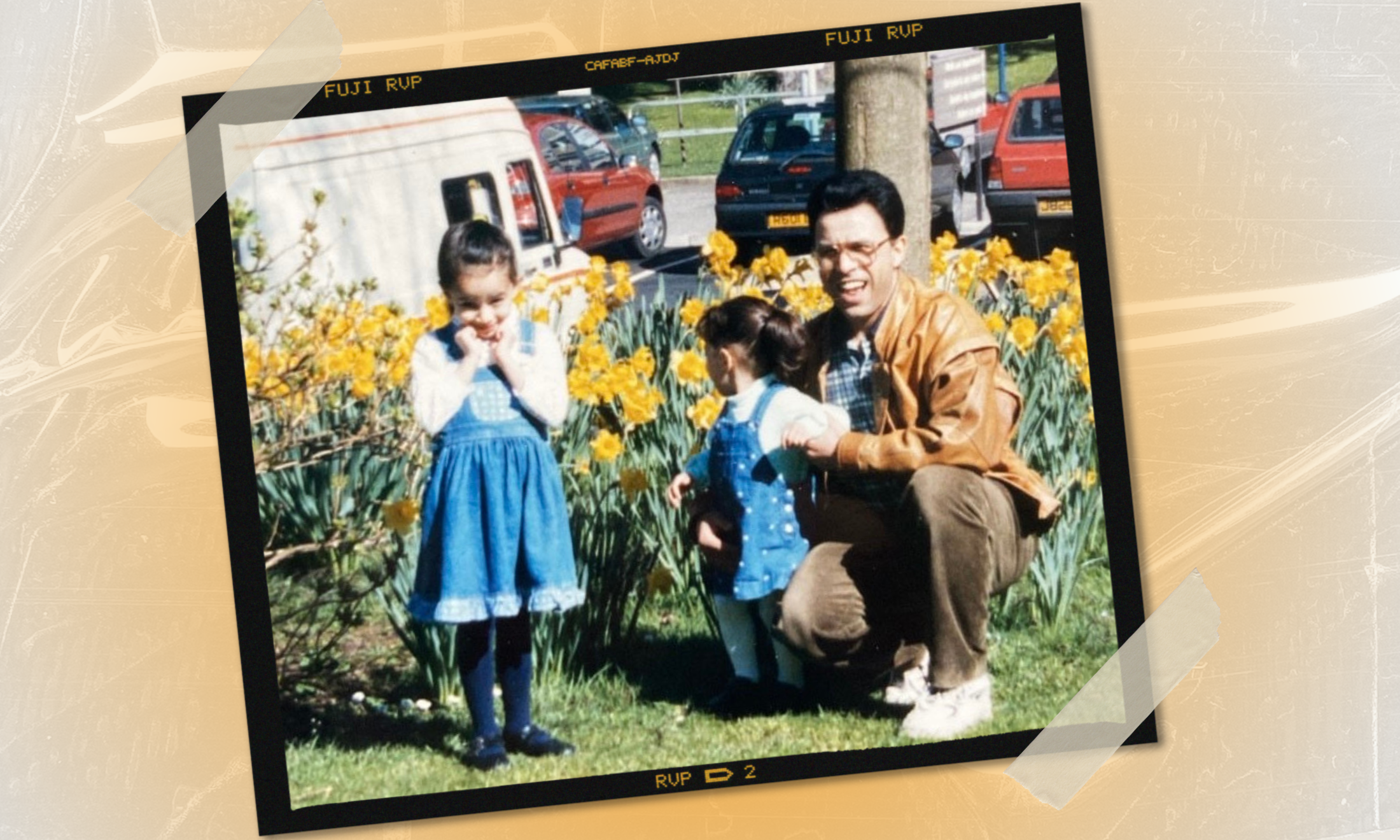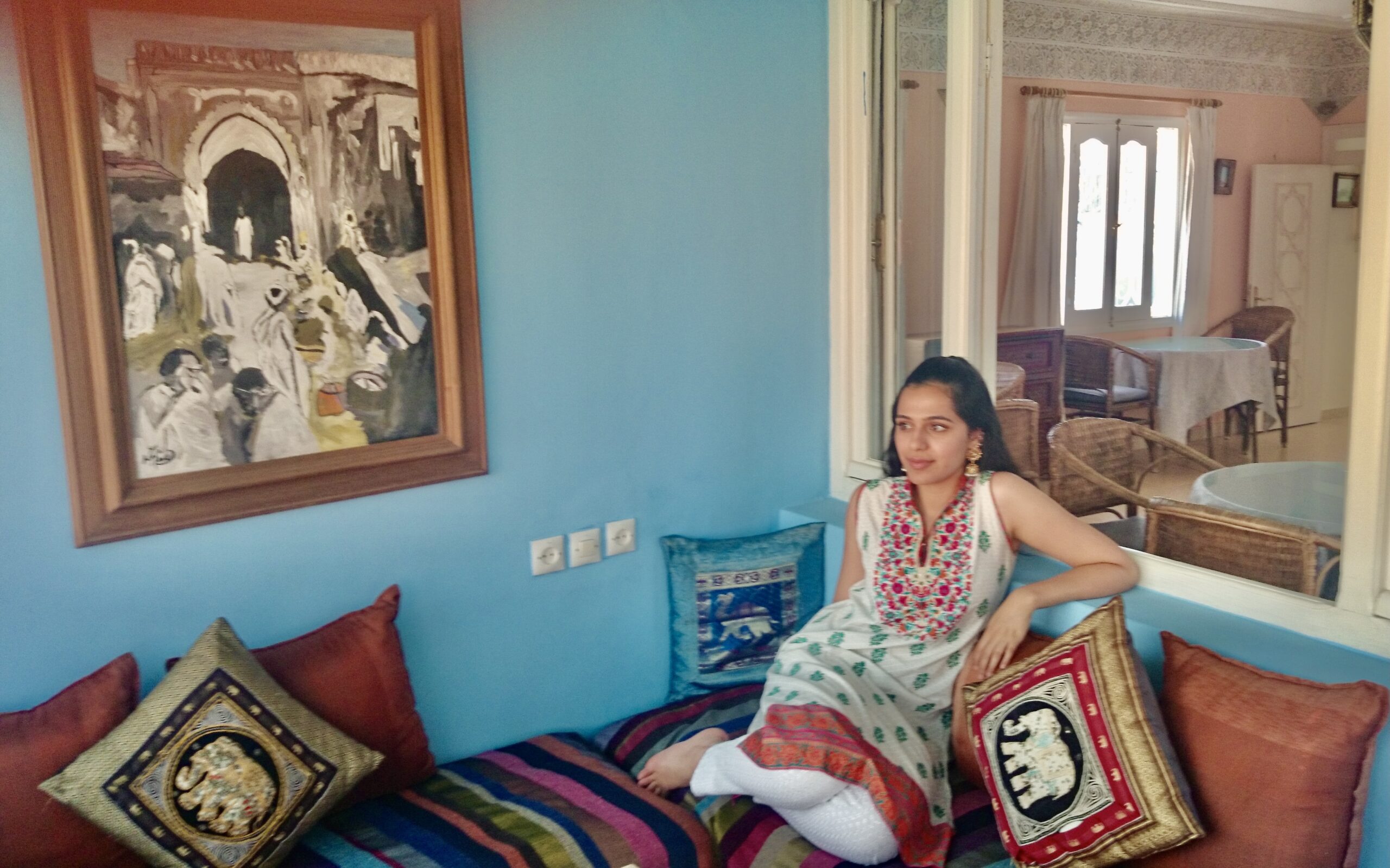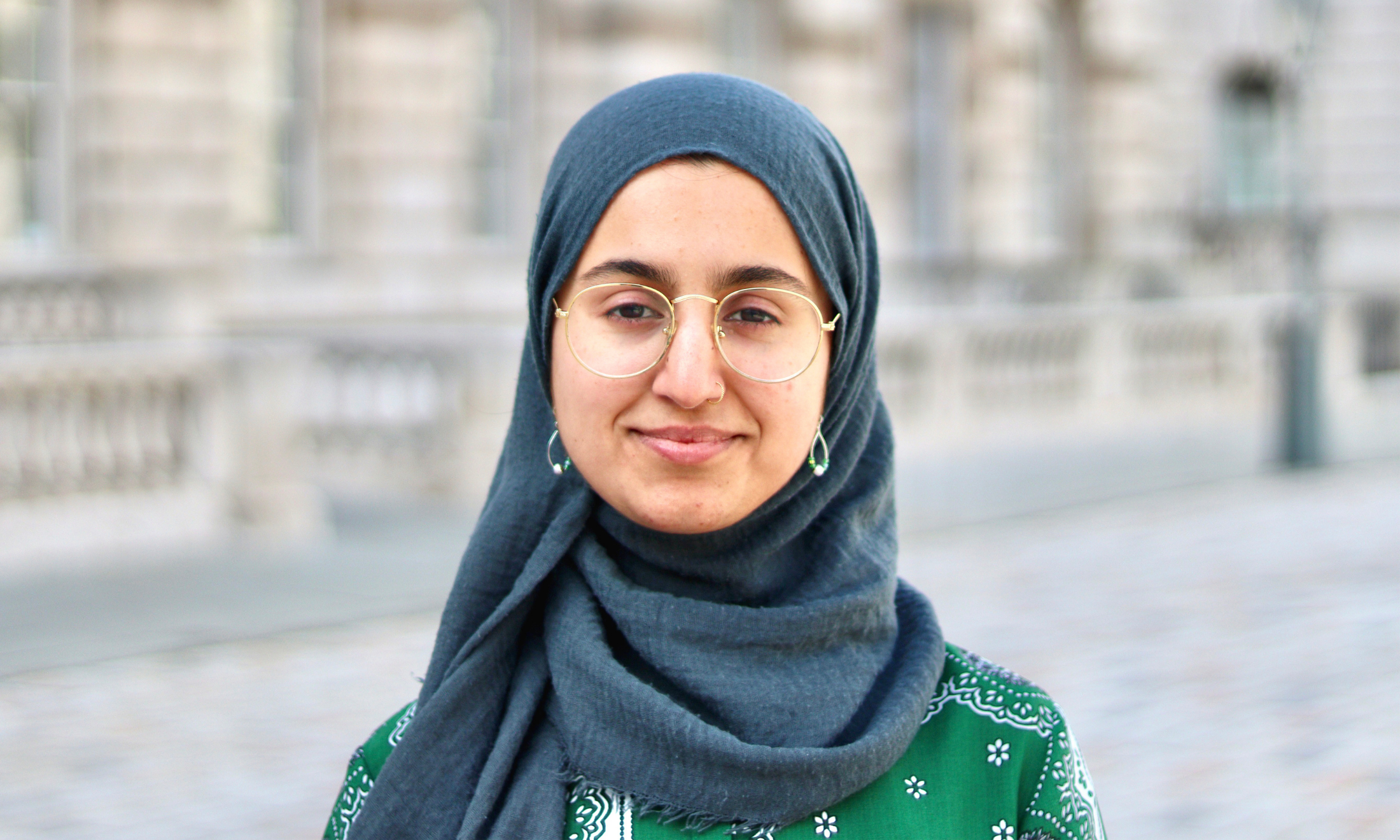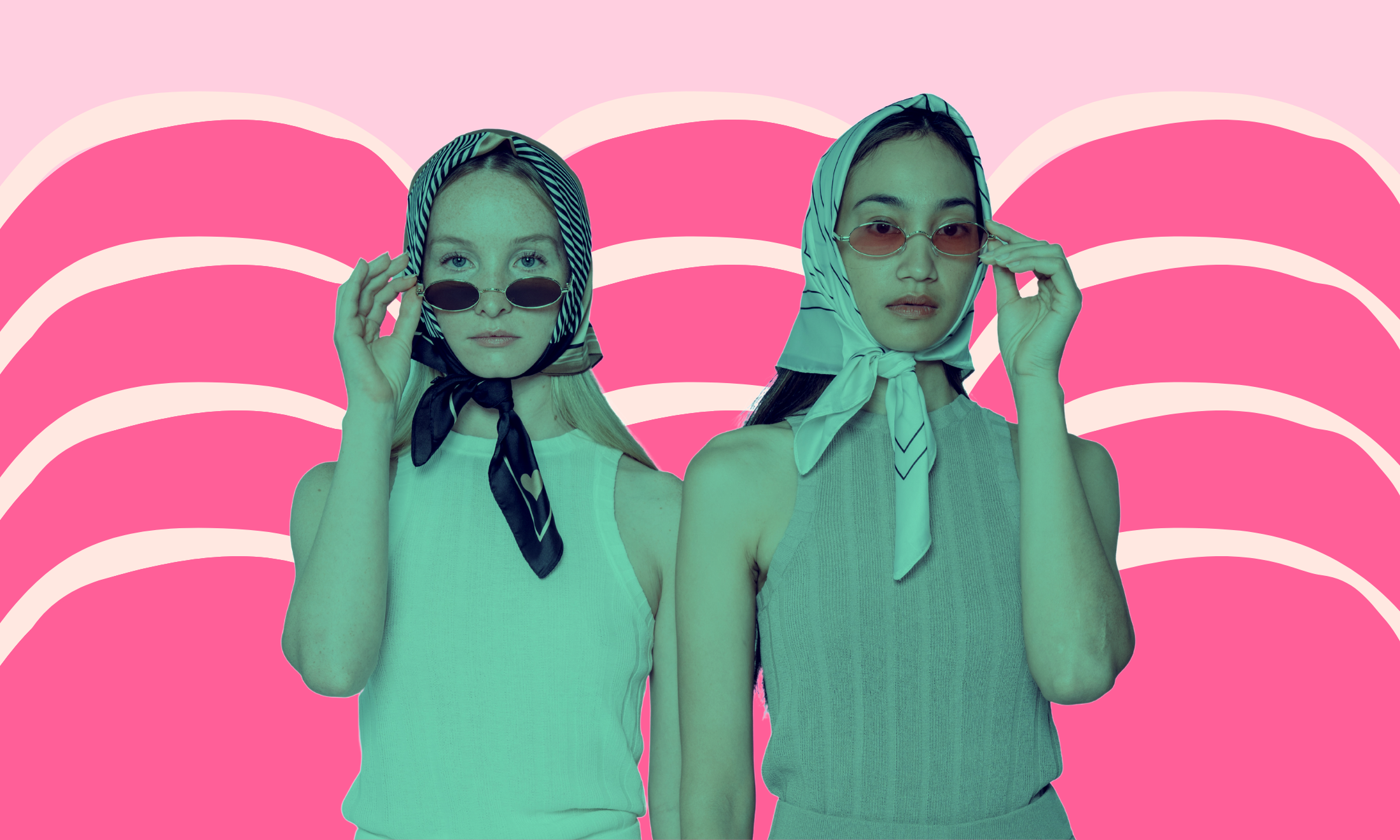How growing up with Islamophobia shaped my faith
I grew up under the shadow of 9/11 and rampant Islamophobia. As a child I internalised this hate, but I’ve rediscovered my relationship with Allah.
Shahed Ezaydi
18 Nov 2022

from author
Content warning: this article contains mention of Islamophobia.
Islamophobia was not a word that I knew as a kid. I don’t think I ever heard the grown ups in my life – my parents and teachers – ever use it either. I was seven years old when the 9/11 attack happened in the US: old enough to be aware of it, but not old enough to truly understand its gravity and the impact it would have on the international climate for Muslims in the years to come.
I didn’t have the term to describe the hate and ignorance of my faith that was so prevalent in my childhood and teenage years. But I did begin to recognise it as a familiar feeling of unease that enveloped my whole self, and left me feeling small and confused. Growing up as a teenager and forming your own sense of self is already messy and hard, even without the addition of attempting to make sense of your faith too. We often think of Islamophobia as an external force on Muslim communities, which, of course, it is: 42% of religious hate crimes in England and Wales target Muslims, according to Home Office figures.
But there’s another layer. When this hateful force is a constant battle you’re facing, it begins to wound and seep through your skin. The Islamophobia I was having to deal with, which was mostly based in ignorance, became an internal struggle.
My childhood was a mixed bag, moving around the country as my dad completed his medical training, but Sheffield is where we settled as a family. It’s where I call home. The area we lived in was pretty affluent and middle class, and I could count on one hand the number of ethnically diverse families who lived on our road. I’ve always felt British, and the UK is my home, but my parents didn’t want my siblings or I to lose our connection to our Libyan heritage, so growing up our household burst with elements of our culture from our first home in Libya too.
“The vast majority of Islamophobic comments I faced were comments based in ‘feminist’ ideals”
It’s only now looking back on my school days that I can see just how widespread Islamophobic views and attitudes were, even amongst people I had called good friends, and how much I internalised this Islamophobia. I had questions regularly thrown at me, interrogating if I would be forced to wear the hijab by my father or if a future marriage would be forced upon me. Peers told me that Islam was ‘backwards’ and a ‘woman hating’ religion. They asked how I could possibly call myself a feminist if I also practised my faith. The vast majority of Islamophobic comments I faced were comments based in ‘feminist’ ideals.
Now, I recognise that brand of feminism as one based on the experiences and ‘girlbossification’ of white middle-class women and nothing else. It’s the feminism that Lola Olufemi identifies in Feminism, Interrupted as “white feminist neo-liberal politics [that] focuses on the self as vehicle for self-improvement and personal gain at the expense of others.”
There was one incident in a religious studies class on Islam during which my classmates talked about me and my experiences while I wasn’t present. They discussed how ‘oppressed’ I was because I wasn’t allowed to do certain things, like go to parties late at night or drink. I wasn’t there to defend myself – not that I should have felt forced to do so anyway. I only found out about it from a friend who was present in the class, who told me later that day.
Dealing with so much Islamophobia, while also trying to find my way through the two cultures I was growing up with, left me feeling pretty lost. Both within myself and within my faith. My friends definitely didn’t get me, and I was too nervous to talk to my parents about my confusion as I didn’t want them to think I was rejecting them or our way of life. But I’d heard so much about Islam from other people, especially when it came to women’s rights, that I started to believe some of it. Would my dad force me to wear the hijab when I was older? Would I end up being pushed into a marriage I didn’t want? Is Islam an oppressive force for women?
And so, I felt myself growing more distant and less curious about my faith and my community. I thought that distance would maybe help me to understand who I was in this world. I also thought going along with some of these Islamophobic comments would mean I’d fit in a bit more with my friends, in what was a predominantly white school in a predominantly white middle-class area. I already struggled with feeling like an outsider as I didn’t go to parties or have boyfriends, so it felt as though I could never properly join in on my classmate’s conversations. It’s something I’m quite ashamed of now, but I think my younger self’s feelings speak to how Islamophobia can permeate our lives in such a profound way, especially when you’re still figuring everything out.
“My confidence in being both a Muslim and a feminist has grown and strengthened over the years and it’s something I’m proud of”
Islam is such a key part of my identity and heritage. The feelings of unease didn’t go away, they simply just changed. If anything, hiding my faith or feeling ashamed of it made me feel worse. I wanted to seek out more knowledge and information about Islam to see if what people were saying was true, but I didn’t really know where to turn. I grew up during the emergence of social media, and didn’t know where to find the information that is more accessible for teenagers now.
It was when I was 17 or 18 years old that I started to read around my religion and rediscover my connection with Islam. I bought and borrowed any book I could find. With every book, I found myself feeling more at home within myself and my relationship with Allah. Unpacking the Islamophobia I’d internalised was no easy feat, of course, but I began to see that all the comments and attitudes that I’d grown so used to experiencing in school corridors were based in nothing but ignorance and negative stereotypes, and bore no reflection on Islam itself.
Now, a decade later, Islamophobia hasn’t just disappeared from my life. If anything, I probably hear a lot more of it. But it no longer impacts my faith in the same way. I know that Islam doesn’t force or restrict women, but gives us an abundance of rights and actively encourages us (and men) to uphold these rights. No woman is forced by Allah to wear the hijab, marry or be confined to the home. My confidence in being both a Muslim and a feminist has grown and strengthened over the years and it’s something I’m proud of. I also know that Islamophobia says a lot more about the other person speaking it, rather than Islam itself. Relearning the beauty and depth of my faith as an adult has given me a comfort that honestly cannot be compared to anything else. It’s a comfort that I wish I could go back and give myself at 14 years old.
Support Shahed Ezaydi’s book The Othered Woman: How White Feminism Harms Muslim Women by going to Unbound’s website.
The contribution of our members is crucial. Their support enables us to be proudly independent, challenge the whitewashed media landscape and most importantly, platform the work of marginalised communities. To continue this mission, we need to grow gal-dem to 6,000 members – and we can only do this with your support.
As a member you will enjoy exclusive access to our gal-dem Discord channel and Culture Club, live chats with our editors, skill shares, discounts, events, newsletters and more! Support our community and become a member today from as little as £4.99 a month.









